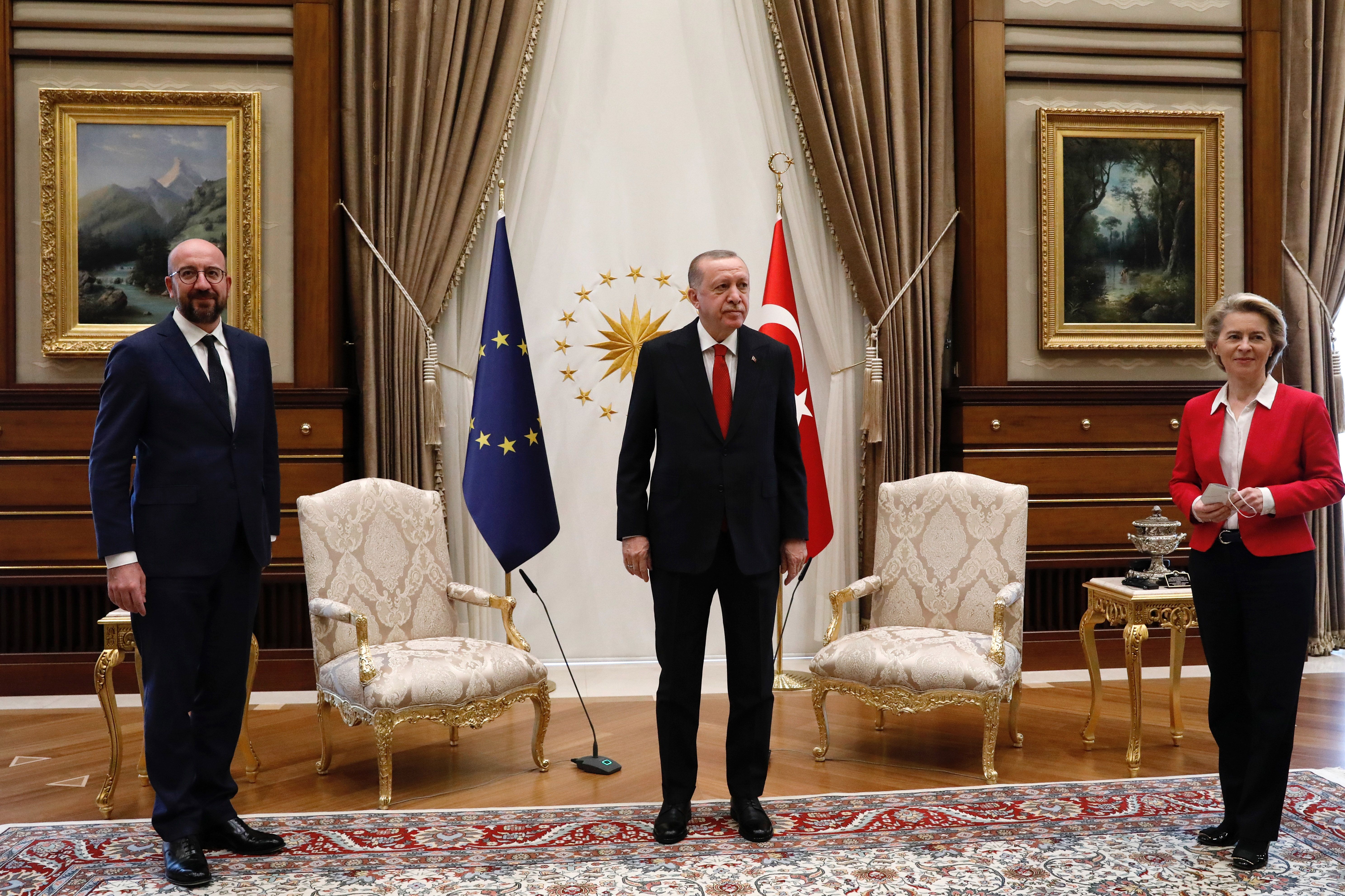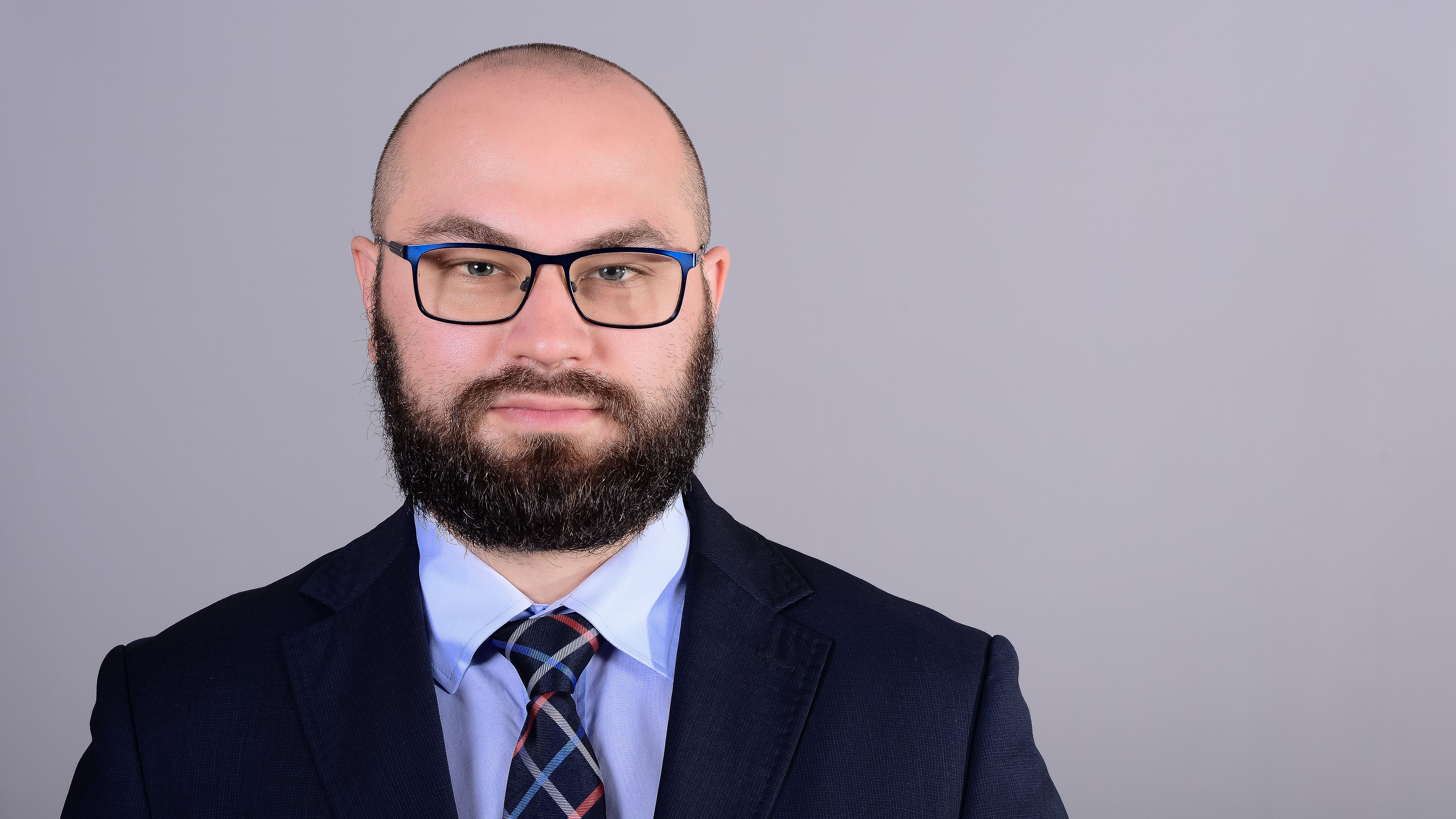Commission and Council Presidents Visit Turkey

What were the circumstances of the EU presidents’ visit to Turkey?
The EU is looking for a new model of relations with Turkey. This is a result of the increasing authoritarianism in this country, which precludes the continuation of accession negotiations. The process of setting this model will be an attempt to respond to the challenges to the EU posed by Turkish foreign policy, such as its actions in the Eastern Mediterranean, as well as tensions with Greece and France. Since Turkey halted drilling in Cypriot waters and resumed negotiations with Greece at the end of 2020, during the March 2021 EUCO meeting the EU leaders announced their readiness to initiate a “phased, proportionate and reversible” engagement with Turkey. At the same time, the EU is ready to harden its policy, including the imposition of sanctions, if Turkey resumes its confrontational activities.
What topics were raised during the visit?
Von der Leyen and Michel communicated to Erdoğan the results of the March EUCO meeting, including the principles of the EU’s engagement. They focus on four areas of cooperation: a) economic ties (elimination of trade barriers, modernisation of the customs union, boosting cooperation with public and private entities, particularly with a focus on the green and digital transformations); b) a high-level dialogue (with the priority given to fighting climate change and public health); c) people-to-people contacts and mobility (including Turkey’s participation in the Erasmus+ and Horizon Europe programmes); d) refugees and migration (continuation of the deal on migration). EU leaders also told President Erdoğan that Turkey should respect international agreements on the protection of human rights.
What are Turkey’s motivations in its attempts to move closer to the EU?
Since the end of last year, Turkish politicians have clearly softened their rhetoric towards the Union and have declared their readiness to rebuild EU-Turkey relations. Their main motivation is the economy. As a result of the government’s policy (including the unorthodox theory promoted by Erdoğan that interest rates drive inflation), Turkey is on the verge of an economic crisis. Unemployment is at 30%, the currency is unstable, and inflation—according to independent economists—fluctuates between 30-40% annually. The relaxation in relations with the EU is aimed to be a positive signal for investors to help Turkey attract Western investments and, as a result, contribute to stabilising the economy. Turkey’s “pro-Western turn” should be seen as serving the aim of the ruling camp’s survival, and not as a long-term change in foreign policy.
What are the most serious challenges to détente between the EU and Turkey?
Among the many problems are the growing repressions in Turkey, for example, detentions of politicians from the opposition Peoples’ Democratic Party (HDP) and plans to ban the party, and Turkey’s ignorance of European Court of Human Rights’ rulings, which create a credibility issue for the EU as well as a political cost for some European leaders. Moreover, disagreements between the sides about the pace of the process to rebuild ties are troubling—while the EU prefers a gradual and reversible engagement, Turkey would like to see rapid improvement. The lack of progress in Turkey’s negotiations with Greece may also become a problem as it may prompt the Turks to resume confrontational policy. In the longer term, a lack of real reforms in Turkey in the rule of law may be a challenge as this will lower the effectiveness of the cooperation instruments proposed by the EU. For example, a modernised customs union will not be able to achieve its full potential unless the Turks are able to create the economic and legal conditions that allow businesses to operate under predictable conditions.
What do the détente between the EU and Turkey and the search for a new model of European-Turkish relations mean for Poland?
The relaxation in EU-Turkey relations could be beneficial for Poland, especially if it leads to the elimination of trade barriers and reduction of protectionism, which has been used intensively by the Turks since 2016. This could, for example, foster the development of Polish enterprises in industries (e.g., cosmetics) that see the Turkish market as a starting point for further international expansion, and could help in fulfilling the ambition announced by presidents Andrzej Duda and Erdoğan in 2017 to double the Polish-Turkish trade to €10 billion a year. In addition, an extension of the détente could, for Poland, reduce the risks linked to the tensions between Turkey and the EU Member States (such as the blocking in 2020 of sanctions on Belarus by Cyprus).
The new model of European-Turkish relations limits the effectiveness of a basic instrument of Polish policy towards Turkey—support for its European aspirations. The advantage, however, is a clear definition of both the conditions under which EU-Turkey relations may develop and the consequences of Turkey’s potential violation of EU and Member State interests. This may limit Turkey’s tendency to perceive relations with Poland solely through the prism of its potential to influence the shaping of EU policy towards the former and, at the same time, strengthen the focus on bilateral relations.


